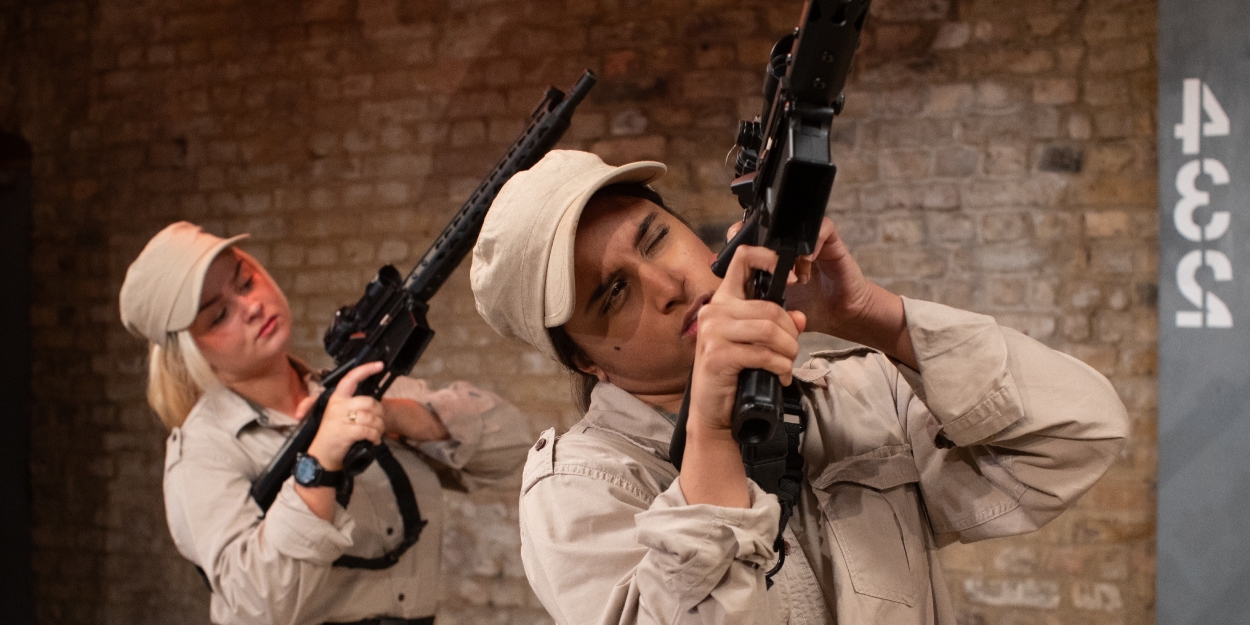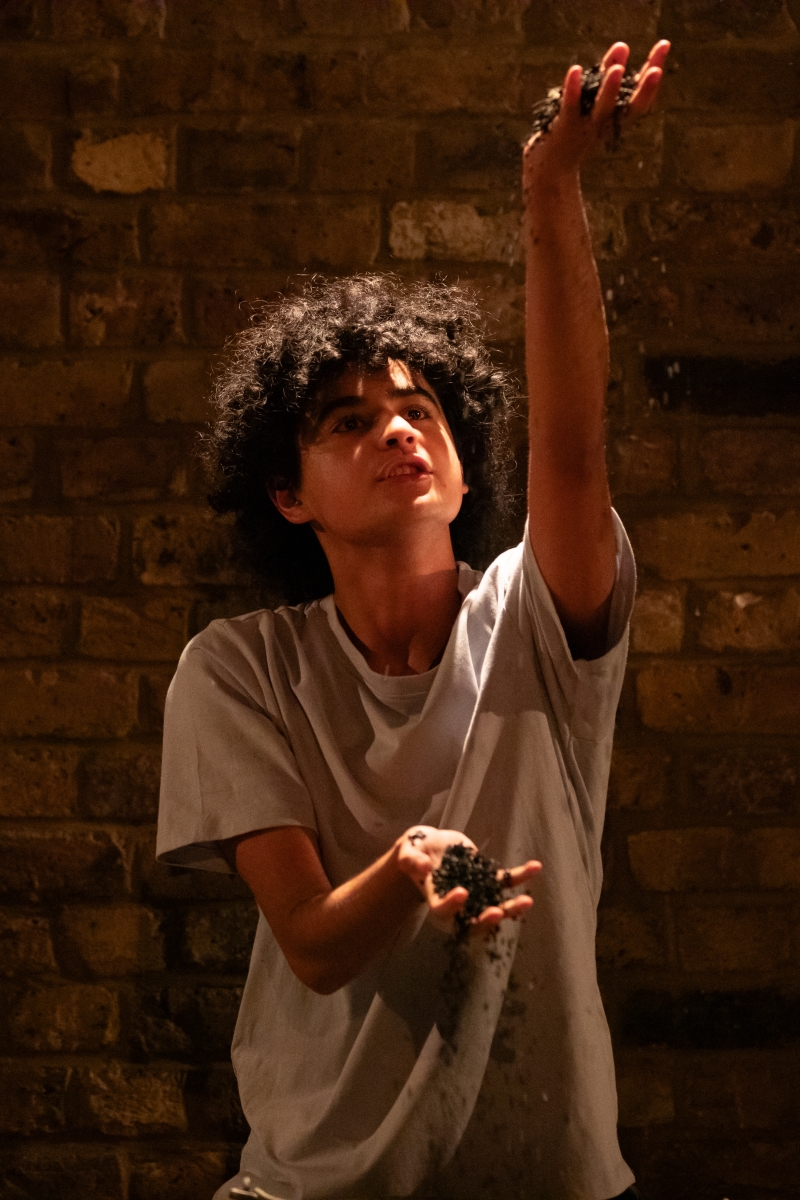
![]() Two young women, Gigi and Dar, are dressed in khaki and clutch machine guns. They are guarding a roadblock and out to kill time. With just six of their 730 days of conscription to go until they can return to Civvy Street, their fantasies about the future (travels, marriage and internships) are beginning to fizz.
Two young women, Gigi and Dar, are dressed in khaki and clutch machine guns. They are guarding a roadblock and out to kill time. With just six of their 730 days of conscription to go until they can return to Civvy Street, their fantasies about the future (travels, marriage and internships) are beginning to fizz.
For the most part they gossip about people back at basecamp and eat Nutella. Only the occasional sound of a warplane overhead or an explosion in the near off distance bursts their coming-of-age bubble. That is until they pull over a 16-year-old boy, Sim, and his heavily pregnant mother Zoz on their emergency dash to hospital in a bid to save her baby. It’s then that the latent horrors of this play’s world come smack bang, but predictably, into view.

Josh Azouz’s new play, having its world premiere in a production at the Arcola Theatre directed by Kathryn Hunter, is characterised by sharp one-liners that lend the text a lick and its protagonists an air of cut-throat rivalry.
Its title suggests a two-hander, and for a good while of its 95-minutes that’s what we get, but the play pivots around Sim and Zoz’s entrance to complete the axis of conflict that underpins the drama and drives its point home.
Michael Vale’s design is sparse — a couple of deckchairs, a sheet of corrugated iron and a bucket of earth — on an otherwise bare stage starkly lit by Ciarán Cunningham. Adi Gortler’s movement direction adds an efficient, slick and quietly expressive tonality to the stage language while the nuance of the text appears mined with characteristic theatrical warmth under Hunter’s direction.
Azouz’s dialogue is broken by occasional asides directly addressed to the audience who are coaxed into being complicit in Gigi and Dar’s secrets and lies. It’s fun, but the characters are complexly drawn enough for it to also hurt. Dar is sassy and working class, her survival instincts closer to the surface, and compellingly played by Lola Shalam in an impressively full-ranged performance. The slightly less assured Gigi played by Tanvi Virmani comes from an unashamedly more privileged place and lacks Dar’s sense of hedonism, but Virmani’s performance is assured, even more so when her character is in retreat.
Roman Asdi (as Sim) movingly captures the stoicism of the oppressed boy needing to survive, even in the face of humiliation; and Chip Chung (as Zoz) has an epic and powerful presence that seems to cry for all mothers.
At one point, Dar asks Gigi if she’s told the audience where we are. She hasn’t, and Azouz never makes the specificity of time and place explicit. But he doesn’t need to, because the horrors that continue to unfold right now through Palestine, Israel and beyond are so heavily evoked (or at least they were for me) that the prism is crystal clear.
As such, the success of Azouz’s play comes from playing with the unsaid said and it hits a brutal but balanced note as a result. At heart, through its display of the struggle of living in the past, present and future, with ourselves and our neighbours, Gigi & Dar illuminates the cyclical futility and fatal pettiness of conflict. Its success lies in it being opaque about where, if at all, it draws the line, while at the same time inviting us to consider what happens next after the suffering.
Gigi & Dar runs at the Arcola Theatre until 2 November
Photo Credits: Ali Wright
Reader Reviews

Videos

